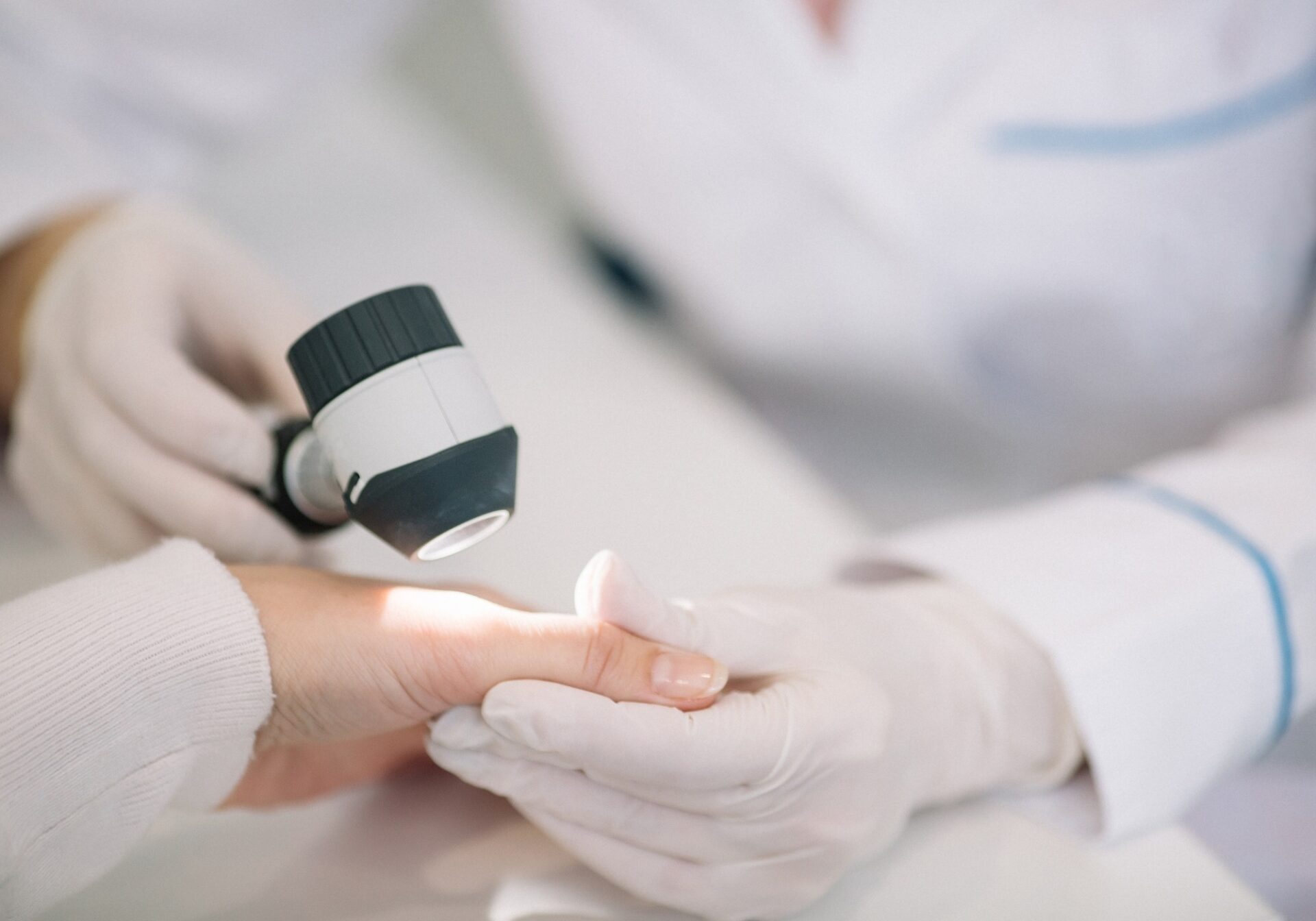ChatRx uses advanced AI to accurately diagnose the symptoms of ringworm and prescribe medications as needed.
**Not for emergency use. Care is provided with physician oversight. AI assists clinical workflow only. For concerning or urgent symptoms, call 911.

Ringworm, also known as tinea, is a highly contagious fungal skin infection that can affect various parts of the body. Despite its name, ringworm is not caused by a worm but rather by a group of fungi called dermatophytes. This condition is characterized by a circular rash with a red, scaly border and can be itchy and unsightly.
Prompt treatment is essential to clear the infection and prevent it from spreading to others. If you think you have ringworm, use symptom checker for a quick assessment.
The ChatRx Free Symptom Checker is Available!
What is Ringworm?
- A highly contagious fungal skin infection
- Caused by a group of fungi called dermatophytes
- Characterized by a circular rash with a red, scaly border
- Can be itchy and unsightly
Causes of Ringworm
- Exposure to the dermatophyte fungi that cause the infection
- Direct contact with an infected person or animal
- Sharing personal items like clothing, towels, or sports equipment with an infected individual
- Exposure to warm, humid environments that promote fungal growth
Preventing Ringworm
- Practicing good personal hygiene, including regularly washing the skin and keeping it clean and dry
- Avoiding sharing personal items like clothing, towels, or sports equipment with others
- Ensuring proper treatment and isolation of any infected individuals or pets to prevent the spread of the infection
- Minimizing exposure to warm, humid environments that may harbor the fungus
Symptoms of Ringworm
- A circular, red, scaly rash with a raised, sometimes itchy border
- Multiple circular lesions that may expand and overlap
- Hair loss or thinning in the affected areas
- Potential spread of the infection to other parts of the body
Treating Ringworm
- Antifungal creams, lotions, or powders applied to the affected areas
- Oral antifungal medications for more extensive or persistent cases
- Maintaining good hygiene and keeping the affected areas clean and dry
- Avoiding sharing personal items and minimizing contact with infected individuals
Self-Care for Ringworm
- Gently clean the affected areas with mild soap and water, and dry thoroughly
- Apply an over-the-counter antifungal powder or cream as directed
- Cover any exposed lesions to prevent the spread of the infection
- Monitor the condition and seek medical attention if the infection persists or worsens
Antifungal Medications for Ringworm
- Over-the-counter antifungal creams or lotions containing ingredients like clotrimazole or miconazole
- Prescription-strength oral antifungal medications, such as terbinafine or itraconazole, for more extensive or persistent cases
Risk Factors for Ringworm
- Direct contact with an infected person or animal
- Sharing personal items like clothing, towels, or sports equipment with an infected individual
- Exposure to warm, humid environments that promote fungal growth
- Weakened immune system or certain medical conditions that increase susceptibility
Ringworm is a highly contagious fungal skin infection that can be effectively managed with the right treatment and preventive measures. By maintaining good hygiene, avoiding shared personal items, and seeking medical attention when necessary, individuals can reduce the risk of contracting and spreading this condition.
While both can cause red, itchy patches, ringworm typically has a distinct circular shape with raised borders and clearing in the center. Eczema usually appears as rough, scaly patches without the characteristic ring pattern.
Not sure about your rash? Let ChatRx’s AI assessment help identify your condition.
Yes, the fungus thrives in warm, moist environments like shower floors, locker rooms, and swimming pool areas. Using flip-flops, bringing your own mat, and keeping skin dry helps reduce risk.
With proper treatment, ringworm usually doesn’t cause scarring. However, scratching the affected area or delaying treatment might lead to temporary skin discoloration.
Applying makeup over infected areas may trap moisture and worsen the infection. It’s best to keep the area clean and dry until treatment is complete.
The characteristic ring shape develops as the fungus grows outward, creating active infection at the edges while the center begins to heal.
The infection tends to occur more frequently in warm, humid weather when people sweat more and spend time in public pools or gyms.
Yes, the fungi causing ringworm can live in soil. Wearing gloves while gardening and washing hands afterward helps reduce risk.
The infection typically becomes less contagious after 48-72 hours of proper treatment, but it’s important to complete the full course of medication.
